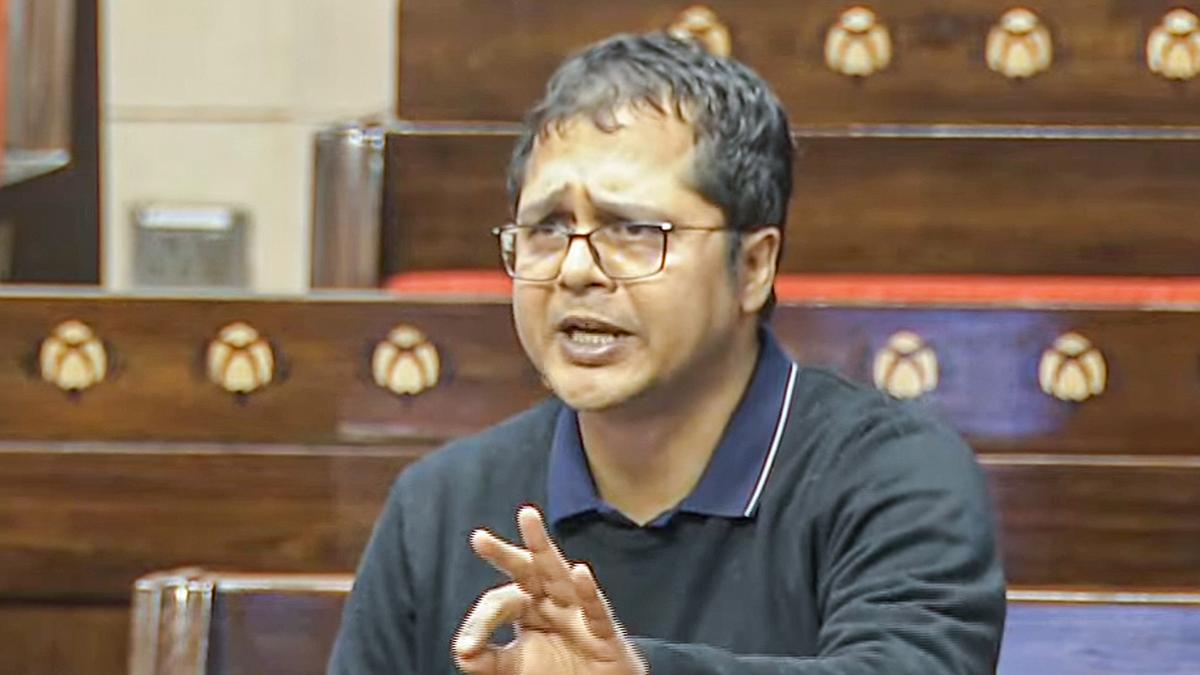
Trinamool Congress (TMC) MP Saket Gokhale. Videograb: SansadTV via ANI
Trinamool Congress leader Saket Mr. Gokhale on Saturday (May 3, 2025) said 98% of the cases filed by the Enforcement Directorate against politicians were against Opposition leaders.
“The remaining two% are those who went and joined the BJP’s ‘washing machine,’” he said.

Mr. Gokhale referred to Thursday’s (May 1) statement of ED Director Rahul Navin, to claim that the surge in cases post-2014 was at the behest of Narendra Modi, who came to power the same year.
Speaking at an event on ED Day, Mr. Navin said the anti-money laundering law had been “largely ineffective” before 2014 and there has been a significant step-up in enforcement activity since then.

In a post on X, Mr. Gokhale said, “Yesterday, the head of central agency ED admitted that there’s been a surge of cases filed after Modi Government came to power in 2014.” “In the last 11 years, a total of 5,297 cases were filed by ED. How many were taken to court for trial? Only 47,” he said.
The TMC Rajya Sabha MP said the conviction rate in ED cases is only 0.7%.
“That means out of every 1,000 cases filed, accused were found guilty in only seven cases,” he said.

“Therefore, out of every 1,000 cases, 993 cases are filed by ED purely to keep a person in jail because getting bail under the draconian PMLA is almost impossible,” he said.
According to the ED Director, 1,739 cases filed under the Prevention of Money Laundering Act are under trial at present. He said out of the 47 cases decided by courts, the conviction rate was 93.6% with only three acquittals.
Meanwhile, Mr. Gokhale accused the Centre of using the probe process as a punishment.

“The idea is to turn the process into punishment in order to blackmail and extort the innocent accused into breaking down and following the orders of the BJP,” he said.
Mr. Navin on Thursday (May 1) claimed that the slowdown in the adjudication of these cases could be attributed to a “general delay” in the judicial system of the country, combined with the inherent complexity of such investigations.
Speaking at an event held in New Delhi to mark the ED Day, the agency chief said though the PMLA was enacted in 2003 and came into force on July 1, 2005, it was “largely ineffective” in the initial years with less than 200 cases per year, mostly “restricted” to drug-related offences.
“After 2014, however, there has been a significant step-up in enforcement activity. From 2014 to 2024, 5,113 new PMLA investigations were initiated, averaging more than 500 cases per year,” Navin said.
The central probe agency was established on May 1, 1956.
It implements two criminal laws — The Prevention of Money Laundering Act (PMLA) and the Fugitive Economic Offenders Act (FEOA) — apart from the civil provisions of the Foreign Exchange Management Act (FEMA).
Published – May 03, 2025 03:22 pm IST
Anurag Dhole is a seasoned journalist and content writer with a passion for delivering timely, accurate, and engaging stories. With over 8 years of experience in digital media, she covers a wide range of topics—from breaking news and politics to business insights and cultural trends. Jane's writing style blends clarity with depth, aiming to inform and inspire readers in a fast-paced media landscape. When she’s not chasing stories, she’s likely reading investigative features or exploring local cafés for her next writing spot.




